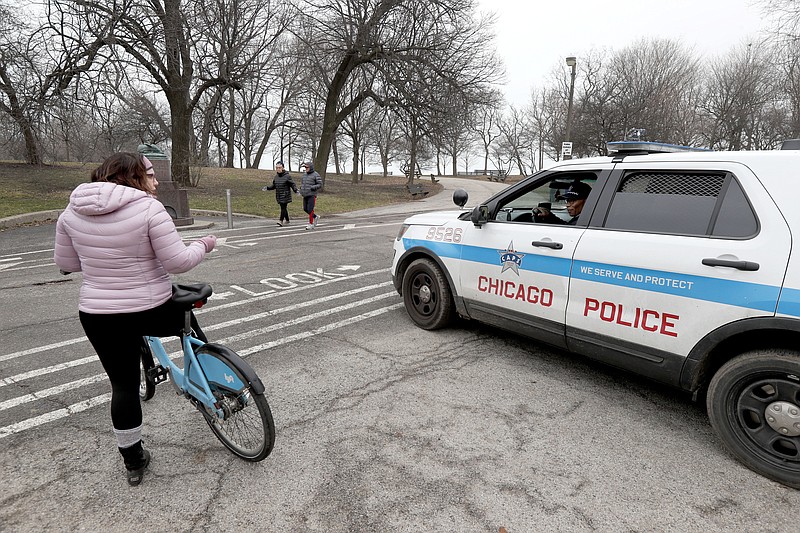[<a href="https://www.newstribune.com/news/health/" style="color:#33AEFF">access the News Tribune Health section</a>]
WEST BLOOMFIELD, Mich. (AP) - More than a fifth of Detroit's police force is quarantined; two officers have died from coronavirus and at least 39 have tested positive, including the chief of police.
For the 2,200-person department, that has meant officers working doubles and swapping between units to fill patrols. And everyone has their temperature checked before they start work.
An increasing number of police departments around the country are watching their ranks get sick as the number of coronavirus cases explodes across the U.S. The growing tally raises questions about how laws can and should be enforced during the pandemic, and about how departments will hold up as the virus spreads among those whose work puts them at increased risk of infection.
"I don't think it's too far to say that officers are scared out there," said Sgt. Manny Ramirez, president of Fort Worth Police Officers Association.
Nearly 690 officers and civilian employees at police departments and sheriff's offices around the country have tested positive for COVID-19, according to an Associated Press survey this week of more than 40 law enforcement agencies, mostly in major cities. The number of those in isolation as they await test results is far higher in many places.
Anticipating shortages, police academies are accelerating coursework to provide reinforcements. Masks, gloves and huge volumes of hand sanitizer have been distributed. Roll call and staff meetings are happening outside, over the phone or online. Precinct offices, squad cars and equipment get deep cleaned in keeping with Centers for Disease Control and Prevention guidance.
Yet, many are worried it's not enough. This week, groups representing American police and fire chiefs, sheriffs, mayors and county leaders asked President Donald Trump in a letter to use the Korean War-era Defense Production Act to ensure they have enough protective gear.
"We're in war footing against an invisible enemy and we are on the verge of running out" of protective supplies, said Houston Police Chief Art Acevedo, president of the Major Cities Chiefs Association. "We've got hospitals calling police departments, police departments calling each other, and it's time to nationalize in terms of our response."
Police are accustomed to meeting staffing crunches by canceling vacations and leave, putting officers on 12-hour on, 12-hour off schedules and, when necessary, shifting detectives and other specialized personnel to patrol.
And officers are used to risk. It's part of the job. But at a time when Americans are being advised to stay 6 feet from each other to combat an insidious virus that can live on surfaces for days, the perils and anxieties are new.

